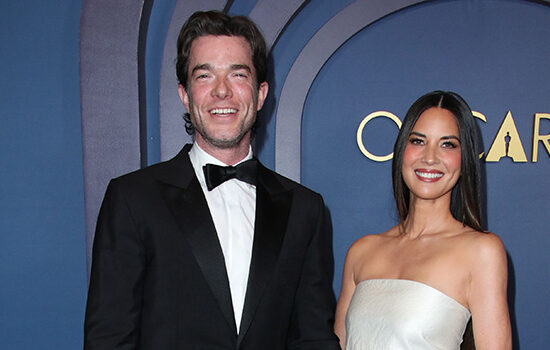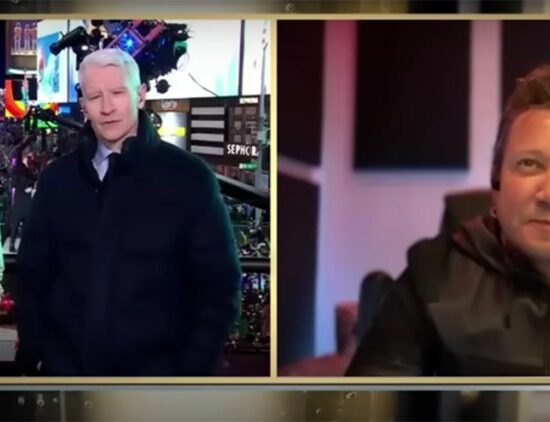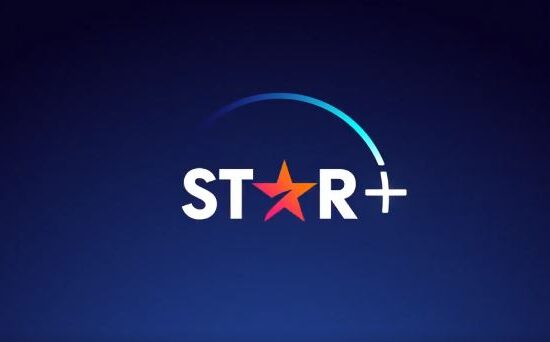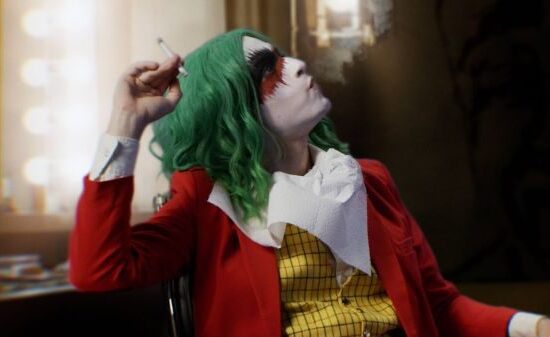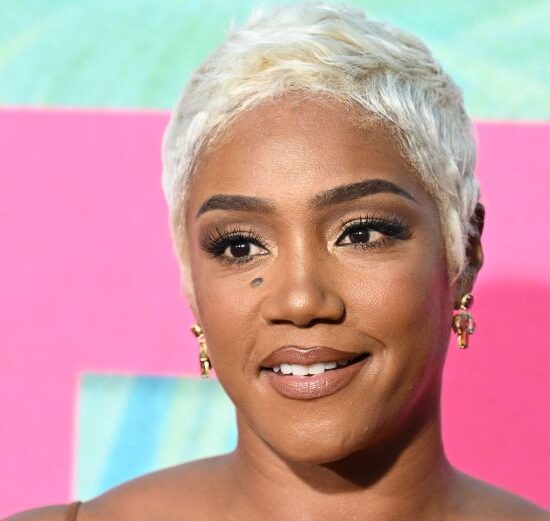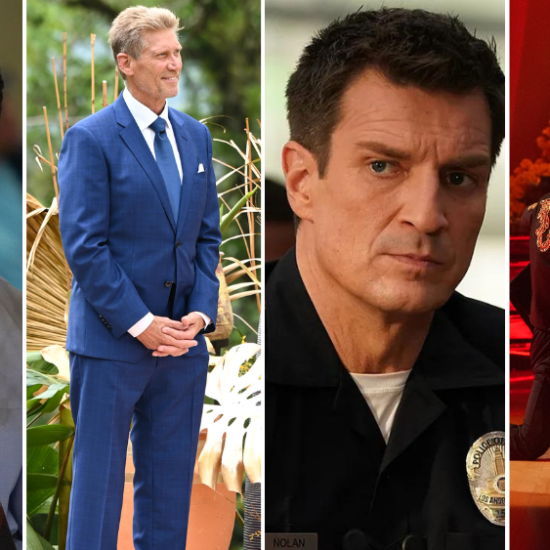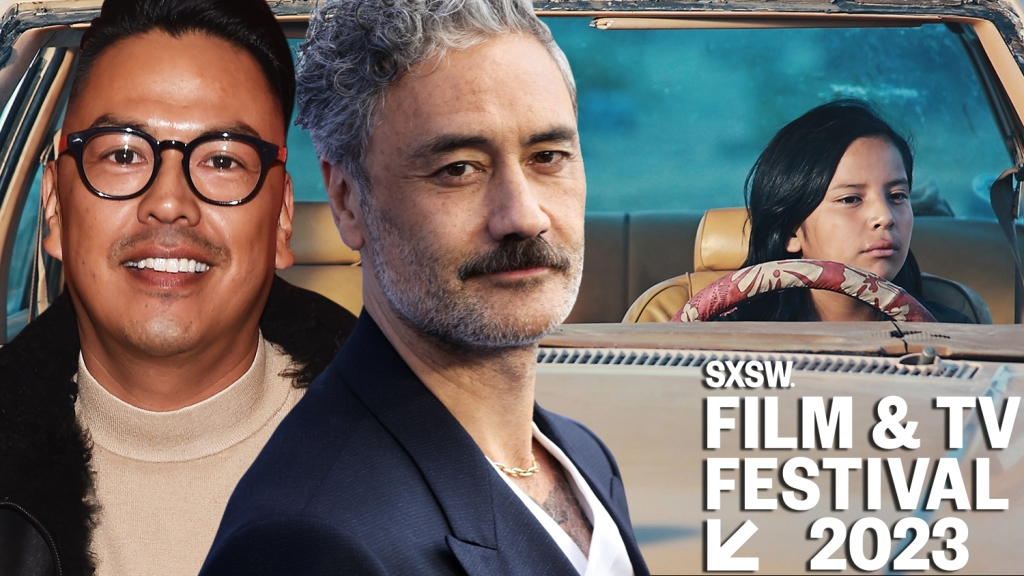
EXCLUSIVE: “I’ve told stories about my community and stuff, but this is, this is my story,” declares Frybread Face and Me director Billy Luther of his Taika Waititi executive produced feature debut.
Premiering tonight at SXSW, the long gestating drama from the Miss Navajo helmer is a 1990-set coming-of-age tale of San Diego reared Benny and the summer he is sent to live with his grandmother and other family on a Navajo reservation in Arizona. The summer becomes all the more significant for the doll-playing and Fleetwood Mac obsessed Benny as the city kid gradually befriends his cousin Dawn a.k.a. Frybread, and learns of not only his own family history through her, but that of his Indigenous culture too.
Spawned out the Sundance Institute labs and financed in part by Charles D King’s Macro, along with River Road and REI Co-op Studios, have teamed with Chad Burris’ Indion Entertainment, the Luther penned and directed Frybread defines expectations at almost every turn.
With Luther in Austin, TX and Oscar winner Waititi in LA for Sunday’s Academy Awards, the old friends chatted with me about the pandemic making of the Keir Tallman and Charley Hogan-led Frybread, the specifics of its story and its universality, and the power of Indigenous storytelling in Hollywood today. In his only interview for Frybread, Reservation Dogs EP Waititi also succinctly spoke about his potential involvement with the Star Wars universe and offer a take on what audiences really need out of Tinseltown
DEADLINE: Billy, this film has been a long time in the making, now you are about to premiere at SXSW. What are your expectations?
LUTHER: You know, I took the time with it. I took the time with this film, and we shot it a couple of summers ago. And, as Taika has said to me, don’t rush the film. Don’t cut your film to make a festival. Make your film, they’ll be all right.
I’ve told stories about my community and stuff, but this is, this is my story. I’ve always said, it’s loosely based on my life, but, honestly, I mean, there’s a lot in there, you know. So that’s just something that I kept in my head aw we were shooting in big pandemic. Where I had to do all my rehearsals and casting through Zoom, which was strange. Truth is, the first time we all met together we all just landed in Santa Fe, New Mexico. And now Frybread is here in Austin, weird.
DEADLINE: Taika, you were onboard with Frybread from the jump, and over the years you have spoken loud and proud about Indigenous kids and communities telling their stories, creating their art, using their voice, but what in the final cut of Frybread and the Navajo community depicted in the film surprised you?
WAITITI: Oh, I think what really struck me, especially in the finished film, was the amount of language that was still being spoken. A lot of people still speak Māori in my community as well, but it was just really lovely hearing it.
DEADLINE: You mentioned your community in New Zealand, did this Indigenous community in Arizona in the film seem familiar to you?
WAITITI: Yeah, basically, it was a similarity and something that I recognize for me growing up with the elders speaking Māori, like in the film speaking Navajo. So, there was a familiarity there, but it was something that felt very different to me because obviously different language and also the landscapes are different in the desert and stuff. Where I grew up was on the beach, and all that food, shellfish and seafood and it was just live off the sea It’s was a very different environment in Frybread.
DEADLINE: Speaking of different environments, Taika, there’s also a lot of talk about what you are working on, now it’s writing and perhaps staring in a Star Wars movie …
WAITITI: (LAUGHS) Yeah, that rumor’s about three years old. All I’ll say is God forbid I make a Star Wars film about people sitting on mountains playing flutes…
DEADLINE: Well, they kind of went there with the last few Stars Wars movies with Luke Skywalker.
WAITITI: Okay, then I won’t do that, for sure.
DEADLINE: Billy, no culture is a monolith, but you have been in the business for a while, do you think that Indigenous stories are having a moment or truly becoming mainstream?
LUTHER: I don’t know, but I look at shows like Reservation Dogs, and I know that was a huge step. I think that’s elevated storytelling. Now, there’s so much in development, and there’s so much out there already in terms of Native representation. So, whether it is a moment or becoming mainstream, I think it’s pretty, pretty great.
Like look, Res Dogs, that exploded pretty quickly. Then you have Rutherford Falls, Dark Winds and you know, there’s other projects coming on. So I feel that there’s just a just a strong plate of unusual storytelling in the Native world and also it doesn’t all mean that we all just have to tell native stories, you know? I mean, I would love to write for Hacks. You know who else I would love to write for? White Lotus. And we can write for those shows, because the talent is there.
I also see it growing in terms of the crew behind the camera. You know, when I looked at on set for Dark Winds, even shooting Frybread …I mean, the talent is there behind the camera. There’s Native camera crews, native scripts, and that’s what needs to happen. I want more Native editors as well as more native stories.
WAITITI: Yeah, I agree. Also, you always want to see something different with the current state of film, TV, especially coming out of America, and I think was something like Res Dogs and Frybread and these things. It’s just nice to be able to break out of what we see in Hollywood.
DEADLINE: How do you mean?
WAITITI: There’s a need for different ways of telling stories, and bringing audiences in.
DEADLINE: How do you do that?
WAITITI: Audiences are so savvy now with the types of stories and the places that stories have fit in movies, and especially with Hollywood.
They crave something, something different and especially if it’s something that also feels close to home. Something that gives them a unique insight that they haven’t really experienced. That feels new to them and I think that’s something that expands their horizons and their experience of story. For me, I’ve come from New Zealand, but the connection I have with filmmakers like Billy and Blackhorse Lowe, and all these filmmakers from here, is that we had the same story. That we all essentially grew up in the same neighborhoods in the same communities. Where I grew up in New Zealand feels very similar to some of the communities I’ve been to here.
DEADLINE: What’s your take on that Billy?
LUTHER: Look, I’ve known Taika for 20 years …
WAITITI: Right
LUTHER: He’s always been supportive with fellow storytellers, used his influence for fellow storytellers, or even just giving a little bit of support in terms of a shout out or something. I mean, that’s huge.
DEADLINE: I have to ask now, how did you meet?
LUTHER: (LAUGHS) I was a volunteer at a film festival. And he asked me for my Nokia phone charger. I’m thinking, I’m never gonna get this charger back. But as six o’clock came, he’s like, thank you bro. We got to talking and he asked, what do you do? So, after that, we were friends, brothers really. Being here at SXSW, that reminds of one of the things I love about festivals.
DEADLINE: How so?
LUTHER: The film world is so big, but it’s also so small, you know? It can be so supportive, it’s all about networking in terms of the film business. They always say it’s all in who you know, and that’s so true – as Frybread shows.
WAITITI: I think it’s also because we all want to be misfits and we all know those stories of people who are those misfits. The Indigenous part of it aside, there’s always people who live on the margins and who struggle to fit in any society, in any town. Doesn’t matter what your race is, there’s always going to be those people that you or that you were growing up – trying to find their identity or trying to find its place in the world.
I think what’s great about this film, what attracted it to me as well is because I grew up in a very similar environment, and I was the odd one out who wanted to be a clown and tell stories and dress up. It’s very easy have that taken away from you growing up in small towns. It’s very hard to become an artist when you grow up in a small town and find like-minded people. Thank God I found art.

DEADLINE: Billy, in terms of your art – what’s next?
LUTHER: Well, I just wrapped directing an episode of Dark Winds, the AMC show that I’ve been writing on for two seasons. As you know, I’ve always wanted to develop my first documentary Miss. Navajo into a feature script. So that’s kind of what I’m diving into now, that world of Navajo women and beauty pageants I started I started writing that maybe about a year ago, finding the tone what I want and how I want it. The documentary was great in terms of honoring the women, especially my mother who was Miss Navajo in the 60s. So with the feature, I just really want to pull no punches.
DEADLINE: Does that sentiment seem familiar to you Taika?
WAITITI: For sure.
We’ve had our time with Once Were Warriors in New Zealand, like in other places and in the States where the representation of Native communities have always felt really heavy. I always found in those film a lack of fun.
DEADLINE: When you say fun …
WAITITI: In the depiction of us. Because we are very fun people, Indigenous people are very funny people despite the years of oppression and injustice that have been done. We’re very positive people and there’s very funny people in these communities.
I think we’ve been tricked into thinking that if we do the Native story, there has to be a lament for a culture that’s gone by. I think the cause is still there, but it’s evolved. In New Zealand, there was an idea with all out films like Whale Rider, which not a bad film, it’s a great film, but it creates this whole idea of Polynesian communities and Māori people in New Zealand that all day long we ride whales and talk to the trees and play flutes on mountains and stuff. I never saw any of that sh*t growing up.
We had very normal lives, very much like everywhere else, except its a very small town with Brown people. Like in Frybread, you remember the fun times, you remember wanting to go to a Fleetwood Mac concert.. That’s our lives too, that’s our stories too.









